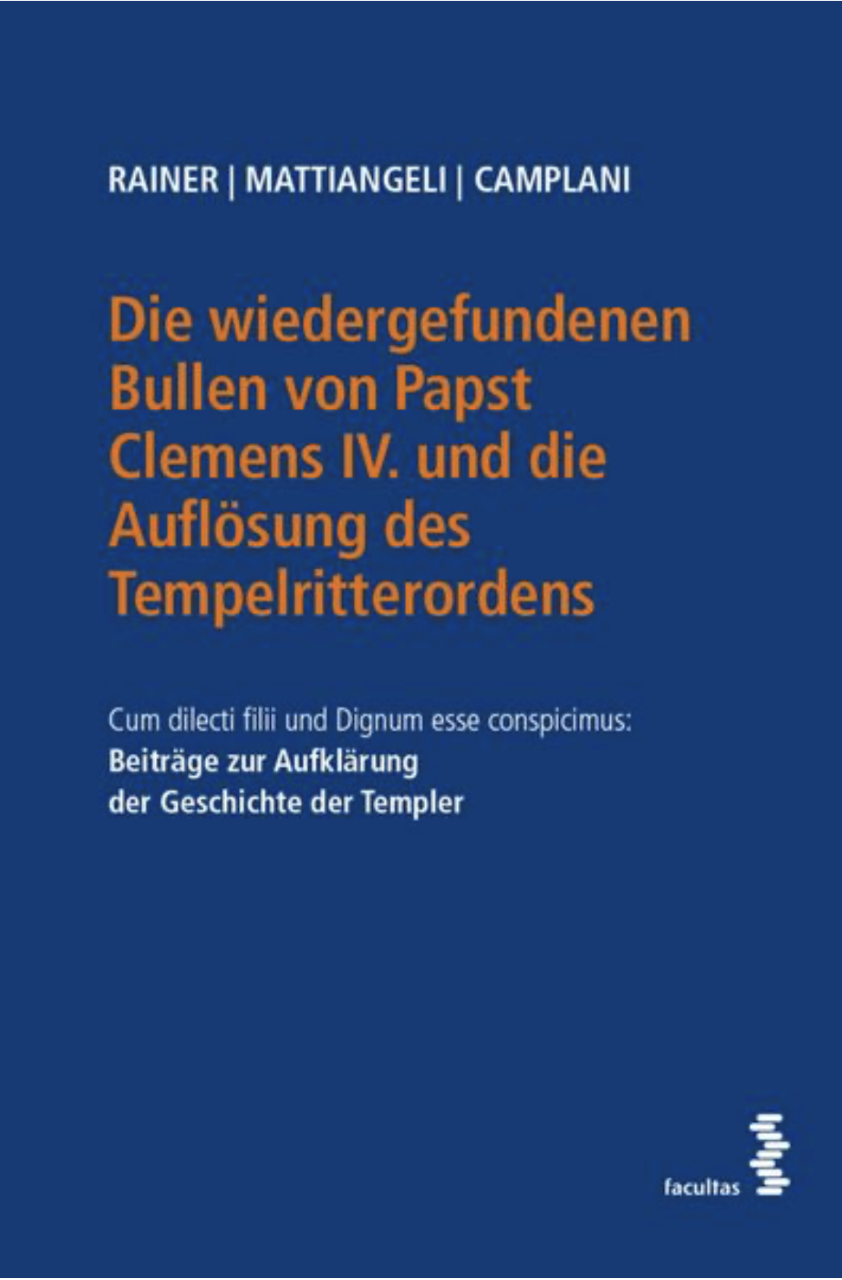PUBLICATIONS
Die wiedergefundenen Bullen von Papst Clemens IV. und die Auflösung des Templerordens – 2021

Photo © Daniele Mattiangeli, University of Salzburg
Rainer/Mattiangeli/Camplani: The Recovered Bulls of Pope Clement IV and the Dissolution of the Order of the Knights Templar, Vienna (Facultas Verlag) 2021
The four 2020 recovered bulls from Paris and a Historical Introduction about the Templars trial
These four bulls all date from the time of Pope Clement IV, whose civil name was Gui Foucois or Guido Foucois or Guido le Gros. He was born around 1200 in Saint-Gilles on the Rhone, studied in Paris, worked as an advisor at the court of the Count of Toulouse and in the council of Louis the Saint, and was married. Clement IV began his clerical career only after the death of his wife in 1256, the same year he was ordained priest. In 1257 he was Bishop of Le Puy, in 1259 Archbishop of Narbonne, and in 1261 Cardinal Bishop of Sabina, and four months after Pope Urban IV died, he was elected his successor in Perugia on February 5, 1265. From his poem on the “Seven Joys of Mary” (“Los VII gauz da nostra dona”), we can see a certain enthusiasm of Clement IV for mysticism. In addition, he was the author of the famous “Consultationes”, which deal with the practice of the Inquisition.
Pope Gregory IX was already fighting against the power of the Hohenstaufen – a dynasty that the popes had blamed for the failures in the Holy Land and were partly responsible for the ever-increasing conflict between the papacy and the Holy Roman Empire. Pope Clement IV, in collaboration with King Charles I of Anjou, succeeded in wiping out the noble family of the Hohenstaufen. A not insignificant role in ending the conflict between the papacy and the Hohenstaufen family was played by the military assistance of the Templars.
Pope Clement IV died in Viterbo on November 29, 1268, just one month after Conradin – the last descendant of the Hohenstaufen dynasty – had been executed. Contemporary witnesses described this as a kind of divine judgment.




